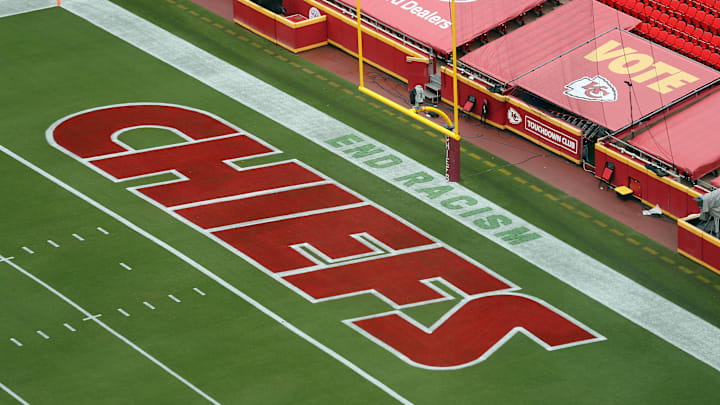Just days before Super Bowl LIX, it was revealed the end zone of both the Kansas City Chiefs and Philadelphia Eagles will not read 'End Racism', as they have for much of the past four years. United States president Donald Trump will reportedly be in New Orleans, becoming the first sitting president to attend the game.
The end zone will no longer read 'End Racism' but will instead have the phrase 'Choose Love', seemingly moving the focus away from the problem just as the current presidential administration guts all diversity, equity and inclusion initiatives within the federal government. The timing is odd from the league's perspective, and directly conflicts with Roger Goodell's own commentary at the beginning of Super Bowl week.
“We got into diversity efforts because we felt it was the right thing for the National Football League,” Goodell said. “And we’re going to continue those efforts, because we’ve not only convinced ourselves we’ve proven it to ourselves — it does make the NFL better.”
As The Athletic's Michael Silver noted, 'It takes all of us' will also be written in the end zone for this year's game.
“We felt it was an appropriate statement for what the country has collectively endured, given recent tragedies, and can serve as an inspiration,” NFL spokesperson Brian McCarthy said.
Why did the NFL roll back 'end racism' campaign for the Super Bowl?
This comes just weeks after teams like the New England Patriots and Dallas Cowboys made a mockery of the Rooney Rule, which is meant to provide minority coaching candidates with better opportunities. In a recent poll by The Associated Press, more than one-third of NFL players are discouraged by the lack of black coaches in the league itself.
“Now that you mention it,” Commanders wide receiver Terry McLaurin said, “I’ve never had a Black head coach in high school, college or the NFL. Coordinators and position coaches only.”
That's an all-too-familiar theme for a league that has plenty of minority influences, but doesn't provide those same figures with much power, especially once they leave the spotlight as a player.
The NFL never had a chance to end racism, of course. The slogan itself was always an impossible goal but, frankly, the bare minimum. By getting rid of the slogan the same day Trump attends the Super Bowl, it sends the exact opposite message Goodell tried to get across to the media at the beginning of the week.
The league started the end zone policy in the wake of the murder of George Floyd by Minneapolis police as an effort of solidarity. Whether it achieved that end game is very much up for debate, and rolling the policy back is symbolic for a country headed in the wrong direction.
